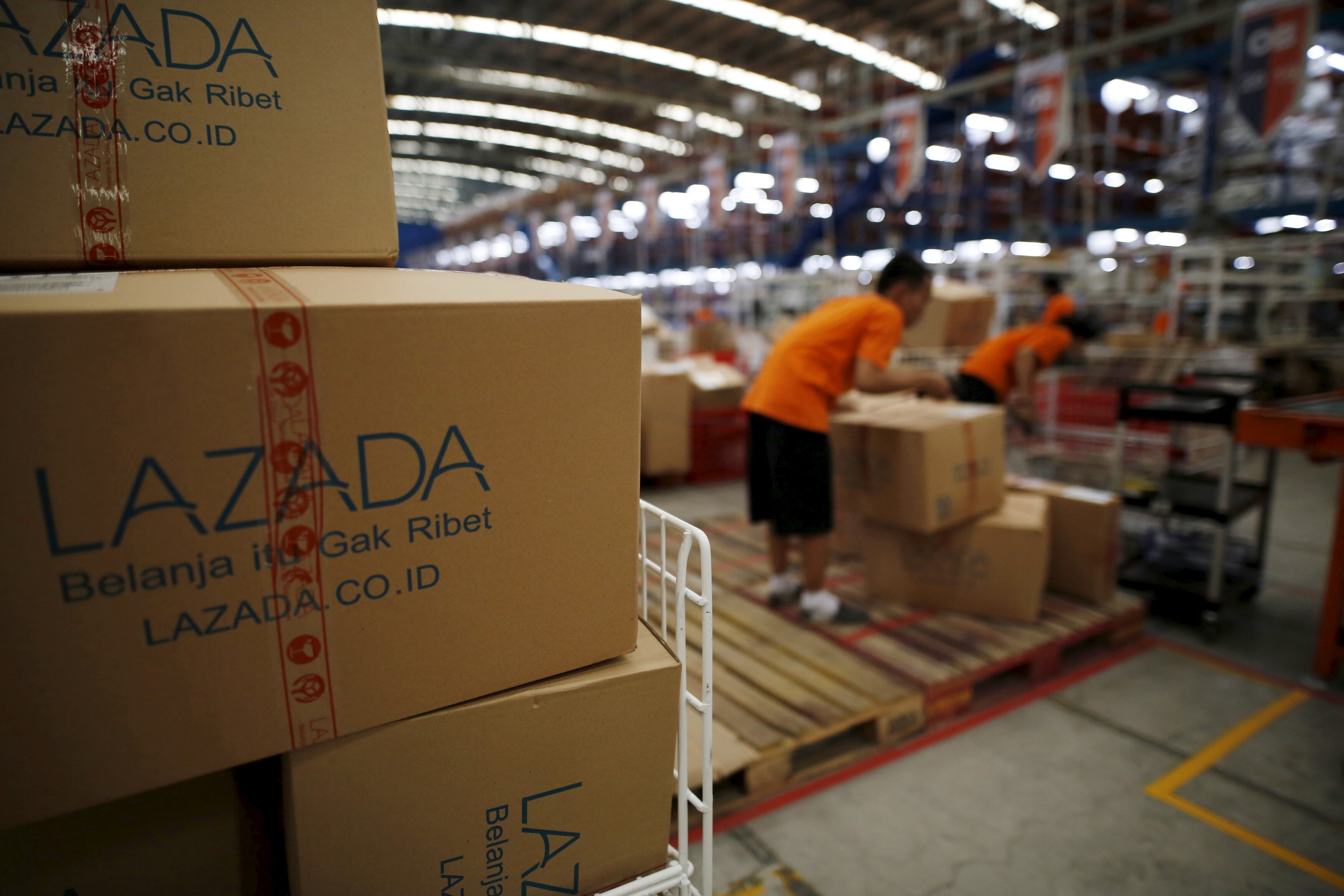Opinion
What do China’s data export regulations mean for its trade competitiveness?

China's data export regulations could threaten its trade competitiveness.
Image: Unsplash/Li Yang
Stay up to date:
Data Policy
Listen to the article
- China's latest data export regulations could create significant barriers for cross-border flow of data for legitimate business operations.
- Such restrictions risk discouraging companies from doing business in or with the country, and could eventually reduce its trade competitiveness.
- China should consider how its cross-border data transfer rules could threaten its status as a leader in both manufacturing and the digital economy.
In the second half of 2022, China unveiled the details of its data export regulations, providing further explanations to its existing laws and regulations on data.
While there is no outright ban of cross-border data transfers, restrictions and procedures imposed on cross-border data transfers could create significant barriers for cross-border flow of data for legitimate business operations.
Such restrictions could potentially discourage companies from doing business in or with China, and eventually reduce the country's trade competitiveness.
China’s data rules restrict cross-border data flows
Since becoming effective in 2018, the European Union's (EU) General Data Protection Regulation (GDPR) has been hailed as the gold standard in data protection. Perhaps surprising to many western observers, China’s Personal Information Protection Law borrowed many of the concepts and regulatory framework from GDPR.
For example, China defines personal information in a similar way as GDPR. China adopts the same consent requirement in obtaining personal data and for transmitting such data abroad. China also adopts GDPR’s approach in providing standard contractual clauses to govern cross-border data transfers.
China following GDPR helps create regulatory interoperability around data and reduce data compliance burdens for companies having global footprints.
However, despite the similarities in certain approaches between GDPR and Chinese data laws and regulations, China’s approach towards cross-border data flows is a significant departure from GDPR’s general principles endorsing free flow of data. Here's how:
- First, China requires the “critical information infrastructure” data and the “core/important data” be stored in the country. When it is necessary to transfer those data overseas for business purposes, the operators and the holders of those data must go through a data security review process and obtain necessary approvals. What constitutes “critical information infrastructure” or “core/important” is vaguely defined. The importance of personal data is tied to the volume a data provider plans to transfer or controls (whether or not the plan is to transfer all of them).
- Second, GDPR allows market players to have the freedom to move data from the GDPR territory to a country that has adequate protection comparable to GDPR. Such broad exemption for cross-border data transfers under the “adequacy of the level of protection” is absent in China.
- Third, GDPR provides more room for companies to move data across borders, including allowing companies to freely transfer data as long as they have in place “binding corporate rules” or “code of conduct” that satisfy requirements GDPR sets out. In China, those options are not available.
- Moreover, even for companies who are qualified to transfer data across borders, they are asked to “record their Standard Contractual Clauses and their privacy impact assessment report” with competent regulators before they can legally transfer data out of China. Such requirement creates practical obstacles to companies who have a regular need for cross-border data processing.
During the Doha Round in 2001, the most recent round of trade negotiations among World Trade Organization (WTO) members, data was not yet an important subject matter for global trade.
China’s trade obligations evolve mostly around WTO. There is no WTO rule preventing countries making data localization rules or restricting cross-border data flows.
Accept our marketing cookies to access this content.
These cookies are currently disabled in your browser.
Since its participation in WTO, China has become the factory of the world. China’s world factory status also allows China to develop advanced manufacturing leveraging data and artificial intelligence technology.
In addition to being the manufacturing centre of goods, China also has a booming digital economy, second only to the United States in absolute terms. Chinese tech companies have benefited from the lack of foreign competition in digital services and from relaxed privacy related rules for many years.
China's data flow policies could work against it
However, with restrictions on data flows, China faces challenges not only to its seat as the world’s factory, but also its digital economy champion status. Policies around cross-border data flows can tilt the balance in favour of China’s trade competitors such as Vietnam or Singapore.
Data has been playing a more important role in the future of manufacturing. Since 2020, more and more companies have started moving their supply chains beyond China to countries like Vietnam to diversify supply chain risk.
While Vietnam mandates the storage of data locally, transferring data outside Vietnam is not subject to requirements as strict as China. Vietnam endorses GDPR’s “adequacy of the level of protection” principle.
Further, China has yet to reach a treaty with major economies regarding cross-border data transfer, while Vietnam has committed to allow cross-border data transfer through its participation in the Comprehensive and Progressive Agreement for Trans-Pacific Partnership (CPTPP).
Vietnam is under the pressure from its fellow participants in CPTPP to loosen restrictions on cross-border data in areas not related to military or national security to honour its trade commitments.
Singapore recognized as a global fintech hub
Despite China’s achievements in the fintech sector, Singapore, a late comer in the game, is viewed as a global fintech hub. Singapore has a relaxed attitude towards cross-border data transfer. Data localization is an exception rather than the rule.
Same as Vietnam, Singapore also follows GDPR’s principle of the “adequacy of the level of protection” and recognizes a broad range of countries and regions as meeting the “adequacy of the level of protection”.
For example, the Asia-Pacific Economic Cooperation (APEC) Cross-border Privacy Rules (CBPR) and Processor Privacy Recognition (PRP) systems are considered by Singapore to meet the necessary protection standards for cross-border data transfers.
How is the World Economic Forum fostering a sustainable and inclusive digital economy?
An overseas data receiver that is CBPR or PRP-certified is considered legally qualified to provide comparable protection for the transferred personal data. Singapore’s embrace of free flow of data will further help it attract talents and investments from all over the world to build its fintech empire.
Data is most powerful when aggregated
The phrase “data is the new oil” has been around for some time. Data is most powerful when it is aggregated. A set of rich and diverse data helps prevent financial crimes, develop new drugs, optimize logistics and resource allocation for manufacturing.
While the protection of individual privacy and national security are important and legitimate objectives for all countries, overly restricting cross-border data transfers imposes heavy burden on companies with global footprints, prevents domestic start-ups from scaling globally, deters foreign direct investments and eventually reduces a country’s trade competitiveness.
While its trade competitors maintain their openness to cross-border data exchange, China is risking its current championship in both manufacturing and digital economy. As the country tries to join various multilateral trade agreements, cross-border data transfer policy and how it will be enforced in reality will be an important subject matter for it to consider.
Don't miss any update on this topic
Create a free account and access your personalized content collection with our latest publications and analyses.
License and Republishing
World Economic Forum articles may be republished in accordance with the Creative Commons Attribution-NonCommercial-NoDerivatives 4.0 International Public License, and in accordance with our Terms of Use.
The views expressed in this article are those of the author alone and not the World Economic Forum.
Related topics:
Forum Stories newsletter
Bringing you weekly curated insights and analysis on the global issues that matter.
More on Trade and InvestmentSee all
Pete Chareonwongsak
October 29, 2025
Elena Raevskikh and Giovanna Di Mauro
October 22, 2025
Shirly Piperno
October 21, 2025
Pedro Conceição
October 2, 2025
Leonor Nieto, Niklas Jäschke and Shirly Piperno
October 1, 2025






